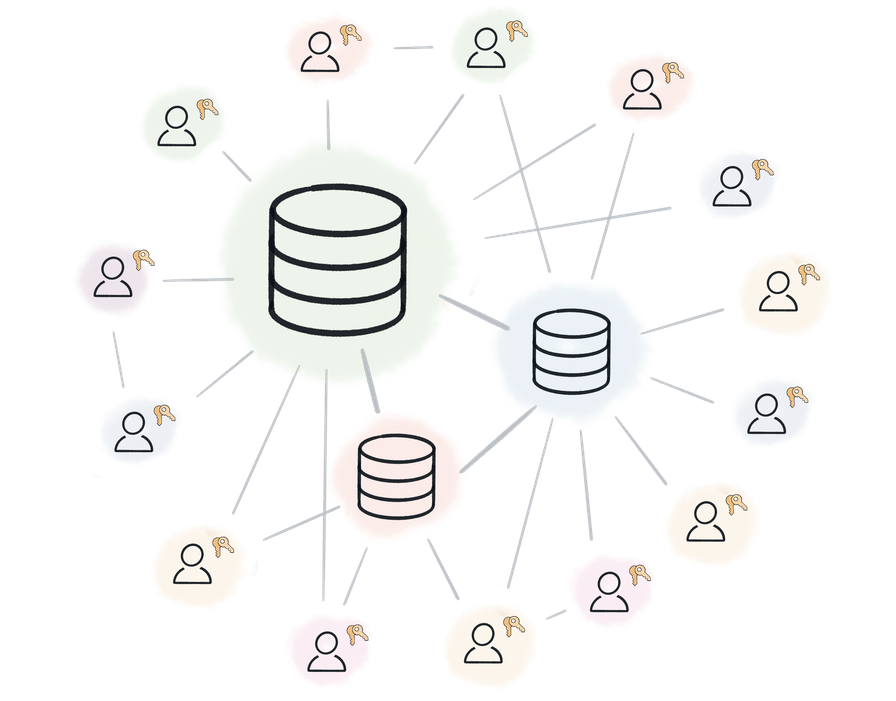Nature's many attempts to evolve a Nostr

my notes ( ? )
Brander with a great intro to the role Nostr could play in tomorrow's online landscape.
A choice of architectures
Walled gardens of surveillance capitalism
He starts by walking us through the various architectures, starting with that "of a typical app: a big centralized server in the cloud supporting many clients... grants the server total control over users. The server owns your data, owns your account, and owns the cryptographic keys used to secure it... [which is] fundamentally feudal... [with] a cryptographic wall around the hoard of data us peasants produce... the castle can pull up the drawbridge at any time, shutting you out ... Powerful network effects build up inside those castle walls. ... leveraged to generate further centralization, extract rents, and shut down competition... When growth slows, the kings of big castles become bad emperors."
Federated servers
"Users talk to the server, and servers talk to each other, trading messages so you can talk to users on other servers. Now you have the benefit of choice: which castle do you want to live in?... easy to implement... an ordinary client-server architecture with a protocol bolted onto the back".
Unfortunately, a range of forces result in "Federated networks become oligopolies at scale". These forces are seen everywhere - "airline routes, power grids, trains, banks, Bitcoin mining, protein interactions, ecological food webs, neural networks... called the scale-free property". It happened to email and now it's happening with the Fediverse, where calls to defederate Threads (10x the rest of the network) were ineffective.
So the fediverse evolves to become something only a little better to the centralised apps it was trying to replace. While "an oligopoly is better than a dictatorship... feds are still feudal. They own your data, they own your account, they own your keys."
P2P
"In a P2P network, each participant runs a peer that can find other peers and send them messages. Users own their keys, and use them to sign, verify, and encrypt messages."
Sounds great in theory, but unlike the others this is tricky engineering: "no central source of truth... [so] we need ... the ability to merge potentially conflicting states. Other things, like timestamps, are also hard ... [and] peers are unreliable".
The same forces therefore come into play, resulting in "superpeers: high-bandwidth, high-availability peers who’s job is to serve other peers on the network... centralization with extra steps", although at least we "own our keys".
Nostr relays
"You sign messages with your key, then post them to one or more relays. Other users follow one or more relays. When they get a message, they use your key to verify you sent it... This is the Nostr protocol... Not federated, not P2P… Relay."
Relays are simple - "Big dumb servers in the cloud... commodity infrastructure... [and] don’t talk to each other" so the scaling problem is avoided. As users own their keys, if a relay disappears you still own your data and you just switch relay.
What I don't understand: if they don't talk to each other then each relay is effectively its own network (see figure) - how do messages find other people not linked to your relay(s)? How does content discovery work?
Read the Full Post
The above notes were curated from the full post substack.com/home/post/p-143032514.Related reading
More Stuff I Like
More Stuff tagged gordon brander , fediverse , nostr , ai4communities , network theory , surveillance
See also: Fediverse , Digital Transformation , Thinking tools , Surveillance Capitalism, Social media and Polarisation (Overview) , Science&Technology